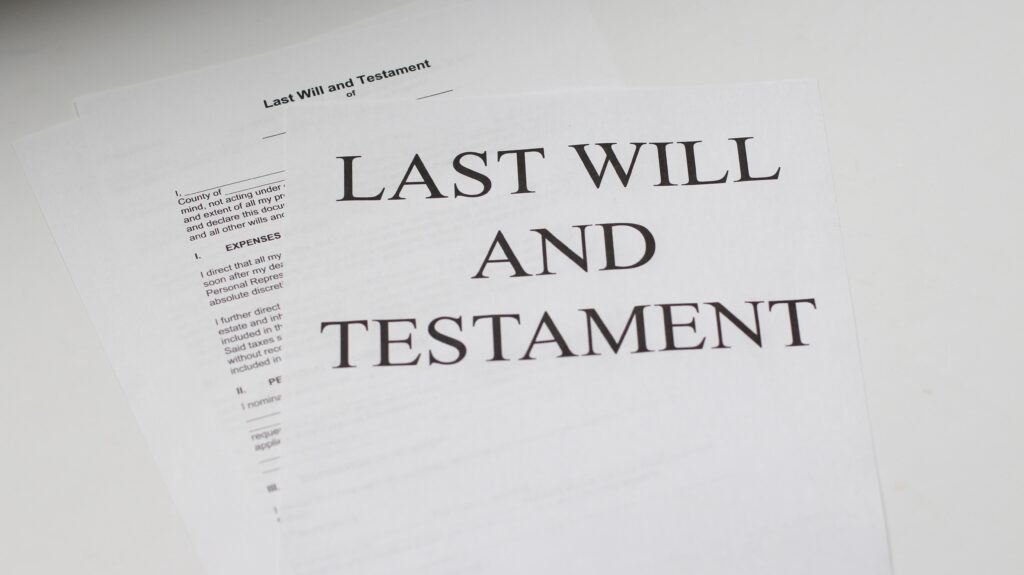Everyone should make a will to ensure that their property is distributed according to their wishes. But how do you know what goes into a will? Do all nations have the same laws on wills? Will your will be permanent or can it be cancelled at any time?
This blog post answers these questions and more, giving you everything you need to know about wills.
Keywords and their meanings
Will = testament or probate (if certified)
maker of the will = testator
codicil = a paper that adds something or cancels a will
beneficiary = the person who shall get the benefits out of the will
executor = one who is responsible for the implementation of the will once the maker dies
What is a will and why do you need one?
A will is a legal document that states how you want your property to be divided after your death.
It provides instructions for distributing material goods and assets and intangible things like family heirlooms or even pet custody.

A will can help guide decision-making on matters such as guardianship of minor children or care of pets.
The person who creates the will (known generally as the “testator”) decides what goes into it by either leaving written instructions in their will, naming an executor with specific wishes on how they want their estate handled, or simply including some indications about these details within the text of the testament itself.
This type of document helps ensure that one’s final wishes are carried out appropriately upon one’s death.
You need to make a will because one day all have to die (the only truth) and the assets you have accumulated needs to be divided among your family members but what if you want to give some parts to your best friend or you don’t want anything to be given to a member of the family.
Role of intention in a will
The most important thing in making a will is the intention of the maker or testator.
intention = what one desires
If the maker of the will is no more and a person claims his assets saying that the deceased person loved him and always wanted him to take care of the assets – this will not be a will at all.
See, to make a will, one needs to be alive to indicate the exact intention. A dead can not intend something to be done.
Remember, the will is something to be implemented in future and not present.
How to create your own will?

Take a paper and write down the way you want your estate to be divided to whoever you want. Yes, it will be a will and it’s that easy!
The only requirement is the presence of 2 witnesses. Their signature on paper makes your will final.
You need to be clear and grammatically good in language to make sure that the will is in its most clear form to avoid confusion when you are not alive.
See, it is not mandatory to have a legal professional make a will but why take the risk when everything can be done by providing a nominal fee. It is advisable to take the help of a qualified legal professional while making a will.
The best way to make a will is to write down every detail of what one wants to give away, whom they want as their executor, etc. This helps save time when making a will because there are no mistakes or confusion over legalities (such as which country).
You must consider how much care you would like from your family members if they inherit your assets before drafting up your final decision on paper. It is also very important that everybody knows about this will so nobody has an idea later on that somebody else was the rightful heir for everything.
When can a will be cancelled?
A will can be cancelled anytime.
A will is not permanent and can be cancelled by the person who made it. A will can also be rewritten at any time with new intentions.
The testator must cancel or revoke the will without any pressure, coercion, undue influence, or any such thing which destroys the free consent of the maker.
The cancellation must be done before the death – while the maker is alive, as only the maker has the right to cancel the will.
The document stating the cancellation of the will is called a codicil.
Can a will be edited?
Continuing the previous point – the will may be revised at any time, just as other legal documents can be updated to reflect changes in circumstance or the law.
However, a will that is created while married and later becomes divorced does not automatically become invalid; it must specifically state how the disposition of assets should take place if there are no children from both spouses.
Here also, the document editing the will is called a codicil.
Want To Make A Will For The Peaceful Distribution Of Your Assets? Connect Your Legal Friend Now!
What is Advance Medical Directives?
Wills made during periods of illness (such as dementia) may have an increased chance for contestation by beneficiaries – this is often referred to as “Advance Medical Directives.”
Advance medical directives are also sometimes called “living wills” or “medical orders.”
The purpose of these directives is to provide guidance for medical treatment and/or end-of-life care in the event that a person becomes incapacitated.
When an individual has made advanced medical decisions, they are able to avoid disputes among family members about what type of care the individual would prefer in the event that they are incapacitated.
For some people, this process is a difficult conversation to have with their loved ones because it may be perceived as an indication of death or dying.
Some jurisdictions also require designated agents to provide proxy consent for patients so that healthcare providers do not need permission from family members before providing treatment.
Common Mistakes to Avoid When Writing a Will
Do not
– forget to specify a guardian for minor children, or if you do not want someone else raising your child then make sure they are appointed legal guardians
– spend too much time discussing how everything should be divided up and instead focus on who will take care of the person’s property in their absence. This includes specifying any trusts that need to be made as well as naming a personal representative (usually executor)
– keep the will lying for years in your cupboard. Remember to update wills every few years because life has many changes with it including the birth of new heirs, divorce or death etc.
Conclusion
Will is an important document which helps people know what they wanted even when he/she dies. It also enables them to write down anything related to making trustees so that they can take care of the property in their absence.
Will is a legal document that provides guidance to your family and friends about how you want them to distribute assets if you die.
It might be necessary for some people (those who have children) but not others like single individuals, those with small estates or those without any heirs.
Wills are also helpful when married couples divorce so that shared property can be divided up between both spouses instead of having to go through a costly court battle over everything.








